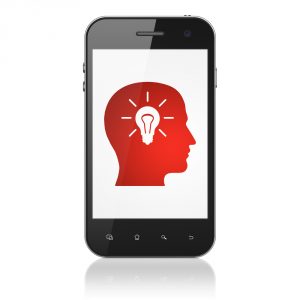 The rise of intelligent machines has long been fertile ground for science fiction writers, but a new report by technology research specialists Gartner suggests that the future is closer than we think.
The rise of intelligent machines has long been fertile ground for science fiction writers, but a new report by technology research specialists Gartner suggests that the future is closer than we think.
"Smartphones are becoming smarter, and will be smarter than you by 2017," says Carolina Milanesi, research vice president at Gartner. "If there is heavy traffic, it will wake you up early for a meeting with your boss, or simply send an apology if it is a meeting with your colleague. The smartphone will gather contextual information from its calendar, its sensors, the user's location and personal data".
Your smartphone will be able to predict your next move or your next purchase based on what it knows about you. This will be made possible by gathering data using a technique called "cognizant computing".
By combining information from apps and the personal cloud your phone will be able to carry out more tasks automatically. "We assume that apps will acquire knowledge over time and get better with improved predictions of what users need and want, with data collection and response happening in real-time," says Ms Milanesi.
Initially the tasks carried out automatically will be calendar based -- things like arranging a car service, or sending birthday greetings. As cognizant computing improves it will allow other tasks like responding to routine emails or booking travel tickets to be carried out too.
Of course none of this means that smartphones are actually becoming intelligent. It's simply that the information they're able to gather via their sensors and from the cloud will make them appear so. This of course raises privacy concerns and how well it works depends on how willing users are to share information. But Gartner reckons that while privacy might be an issue for some, consumers are willing to give up a good deal in return for convenience.
"Mobile phones have been our trusted companions for years channeling the natural need we have to communicate with others and express ourselves first with voice, then with the internet, and more recently through applications," says Ms Milanesi. "Smartphones, their technology and operating systems have been radically changing other devices from PCs to televisions. The era of personal cloud is empowering users as well as devices to get access to and share more and more data. Over the next five years, the data that is available about us, our likes and dislikes, our environment and relationships will be used by our devices to grow their relevance and ultimately improve our life".
Gartner analysts will be discussing the future of smart devices at the Gartner Symposium/ITxpo 2013 in Barcelona from November 10-14. You can follow news from the event on Facebook or on Twitter using the #GartnerSym hashtag.
Image Credit: Maksim Kabakou/Shutterstock

